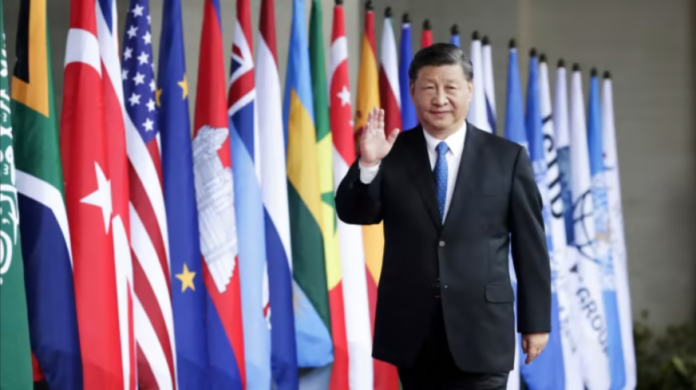For the first time, China’s leader will skip an important meeting of the world’s 20 top states, sending Premier Li Qiang to attend the event in his place, CNN informs.
Xi Jinping’s absence is due to growing tensions between China and India, where the summit will be held, over disputed border areas, as well as improved relations between India and the U.S.
The question about Xi’s participation in the event was initially raised last week when Reuters, referring to two unnamed Indian diplomats, informed that the Chinese president would probably miss the summit. Then, China’s Foreign Ministry announced Li would attend the G20 on Saturday and Sunday. Xi Jinping was not mentioned.
Mao Ning, a ministry spokesman, dodged a reporter’s question about the reason for Xi Jinping’s non-appearance and answered missing the substance:
The Group of 20 is a major forum for international economic cooperation, and China has always attached great importance to and actively participated in relevant activities.
Previously, the Chinese leader attended the meetings in 2020 and 2021 via video link, even during the COVID pandemic.
The U.S. hoped that Xi Jinping would attend the G20 so that the leaders of the two superpowers could meet and improve their uneasy relationship. However, before the official confirmation from Beijing, Biden expressed his disappointment publicly that he would not see Xi in New Delhi.
I am disappointed, but I’m going to get to see him.
Their last personal meeting took place in November 2022 at the G20 summit in Bali. They promised each other to establish communication channels in order to prevent the rising tension from turning into an open confrontation. It was the only time they have met in person since Biden assumed the office of U.S. President.
Efforts at rapprochement between the countries had been thwarted at the beginning of the year by an alleged Chinese spy balloon, then four representatives of the U.S. cabinet visited Beijing to deescalate the conflict.
Xi’s non-attendance also means that a bilateral meeting with Indian Prime Minister Narendra Modi will not take place. The meeting is necessary since both nuclear-powered parties still have disagreements over the contested territories.
The tensions between New Delhi and Beijing rose again last week when China published a new national map, causing a “strong protest” in India. It included the Indian state of Arunachal Pradesh and the disputed Aksai-Chin plateau in Chinese territory.
In the distant past, the disputed border caused conflicts which turned into the war in 1962. The confrontation had ended up with the victory of China, but the conflict erupted again in 2020 after a deadly fight in the Galwan Valley, which led to the deaths of 20 Indian soldiers and four Chinese.
